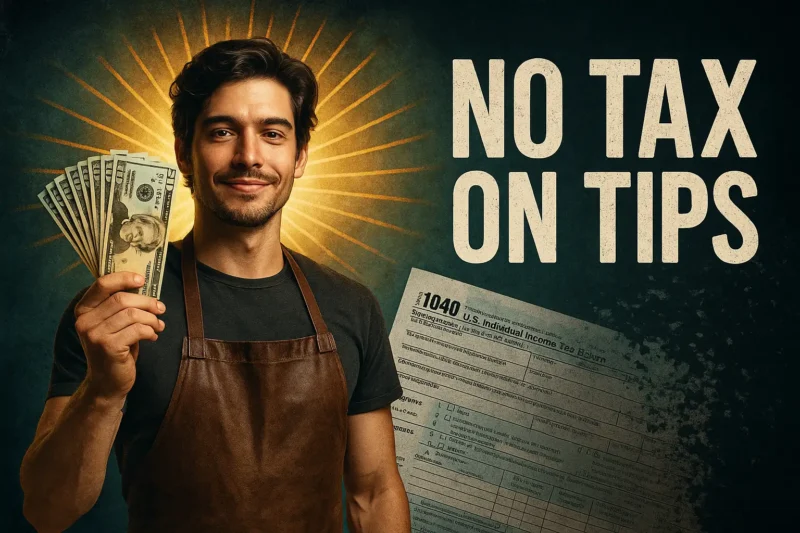“South Carolina is a ‘Right to Work’ state, which means we can fire anyone, at any time, for any reason”.
…the tacit ending of that statement being “…with no legal consequences or accountability whatsoever for throwing the fired person’s life into turmoil.” So I was told when I started managing restaurants in Charleston.
“That’s ironic,” I thought. “That definition seems to have nothing to do with employees’ ‘right to work’ and everything to do with employers’ ‘right to fire’…the epitome of Orwellian doublespeak.” My then ignorant, judgmental mind immediately scoffed and dismissed the whole law as just another one for the “conservative Bible Belt shit” bin, right along with the South’s record as always being at the bottom of the barrel for education funding. I was sure this “Right-to-Work” (or “RTW”) was in lockstep, or even the reason, for servers (“tipped employees” to use the legal term) making a laughable $2.13/hour and many back of house (“BOH”) workers making an even more laughable $7.25/hour since they don’t receive tips (and restaurants have actually been sued for tipping them out but that’s for another article).
As usual, I wasn’t completely wrong…and I wasn’t completely right.
It’s never as simple as we like to think when we’re being dismissive. RTW’s tangled roots are as historic as the Industrial Revolution itself, and literally as convoluted as millions of competing perspectives, political agendas, macro-scale power plays, legal language associations and exploitations therein. The birth of the everlasting tug of war between employers and employees dating back to the Great Depression is another factor that contributes to RTW’s complexity.
But without getting bogged down in every historical facet, suffice it to say that RTW laws don’t, in fact, allow employers to fire anyone without consequence. At-will employment laws do. Simply stated: “both the employer and the employee can terminate the employment relationship at any time, for any reason.” Every state in the Union except for Montana are at-will states. But even at-will laws are beholden to federal and state anti-discrimination laws. So what “at-will” effectively means is that you can fire anyone for any reason without legal consequence…you’re just not allowed to ever say it’s because of their race, gender, age, or sexual orientation. And even if you don’t say it, but it’s clear that any of those were the reason, you can and should expect to be sued. In my circles in the hospitality industry for the last two-plus decades, “right to work” and “at-will employment” are two concepts that have been completely and erroneously conflated.
For some reason the phrase “Right to Work” just caught on and got blamed for everything,
from tip pool pilfering lawsuits against restaurant owners, to unethical and illegal employee “breakage fees,” to shady off-the-books immigrant payment practices, to Asshole Boss Entitlement Syndrome, but RTW actually has nothing to do with any of these things. (And yes, I just made up “Asshole Boss Entitlement Syndrome,” but you all know “A.B.E.S” when you see it, expressed as sad little power trips by bosses in ever restaurant coveting their “If you don’t like it, there’s the door” mantra like Gollum clutching The Precious.)
What RTW laws actually, and only, do is make it illegal for labor unions to require membership or membership fees as a condition of employment. While this does not ostensibly ban or even limit the legal powers of unions, it makes it impossible for them to mandate the one thing that gives them all of their power; the one thing Pacino (as Jimmy Hoffa) hollers about ad nauseam in The Irishman: solidarity.
Without membership being compulsory, it only takes one defector to crack the dam that fortifies any and all unions. Many believe this alone undermines and destabilizes unions and therefore workers’ rights in general. In recent news we saw Drew Barrymore being censured by her entire industry for being the one conspicuous defector who started her talk show production back up, thereby pulling one of the crucial foundational blocks out from the bottom row of the shaky writer’s strike Jenga tower for the whole nation to see. So, while it is still legal to defect from unions, pressure from the majority often still works, as we saw when Barrymore apologized and halted production after the backlash. Our current lack of any new episodes of late night shows, sitcoms, and movies are proof positive that RTW laws do not by any means categorically disable unions, but they certainly stymied the mafia-controlled unions of old from employing all of their aggressive political and physical strong-arm tactics.
But while RTW laws do not criminalize or outright dismantle unions or workers’ rights explicitly, there is little doubt that by pulling the lynchpin of compulsory membership, they have certainly weakened the power, the solidarity, of unions themselves. As a result, more often than not, these states’ values bleed over into employee compensation, i.e. minimum wages. And considering the divisiveness of RTW laws since day one, it’s no surprise that currently, as each day gets more politically polarized than the day before, both RTW laws and dismally low hourly pay rates divide the states almost perfectly in half. Twenty-six states currently enforce RTW laws, and twenty-six states still have $4/hour or lower minimum wages for tipped employees. While these respective twenty-six are not all the exact same states, of the twenty-six states with minimum wages under $4/hour, seventeen of them are RTW states, and yes, with the exceptions of New Jersey and Virginia, all of them are the deeply “red” states.
So, RTW laws tend to be indicative of individual states’ values and yet another expression of “The Big Sort” trend (Bill Bishop’s landmark book on the political clustering of neighborhoods and states). Besides the large Venn diagram overlap of “RTW States” and “Bottom-of-the-Barrell Minimum Wage States,” there really isn’t a whole lot about RTW laws themselves that restaurant employees can point to. When it comes to the most basic requirements like pay, benefits, safety, rights, or representation, restaurant employees have never had strong unions, before or after RTW laws took hold of just over half the states in the nation.

Manager and Waiter Discussing Employment Matters in the Food Industry | Image by By Jerbear
Depending on the year and the study, the rate of restaurant worker unions membership is between 1.3% to 3%, which might as well be zero in terms of political sway, despite American restaurant workers potentially being thirteen million strong. In an industry where 85% of employees’ bosses don’t offer them healthcare, have some of the lowest starting wages, many cuts, scrapes, bruises, and hazards, all exacerbated by long (mentally and physically) taxing hours ranging from unnaturally early to even more unnaturally late, you’d think unionizing would have set sail alongside the factory workers’ unions well over a century ago.
But the restaurant industry is an ever-spinning two-sided coin: on one side is the convenience of schedule flexibility, more part time options, and the uniquely beautiful opportunity for so many without a higher education to work their way up from the dish pit to the GM’s office. On the other side of that coin…fickle transience. You can’t build a national movement–you can’t build long-term solidarity- when the majority of your staff are only there for the summer, the school year, as a part time second job, don’t speak fluent English, or don’t have their citizenship, green card, or work visa.
For all of these reasons, it’s time we abandon any and all gripes about Right-to-Work, or At-Will employment, flawed though they may be, and focus all of our collective efforts. The simplest and most obvious opportunity to reduce poverty for underserved communities and profoundly transform the lives of millions of restaurant workers is simply to raise the minimum wage. This will benefit every ethnicity, every demographic, from the dish pit on up. That’s a tougher fight decades in the making already, and one for another article.
Stay tuned, suckers.

86d Me Right To Work States Explained | Image by 86d Me Right To Work States Explained













I love the Travelers!